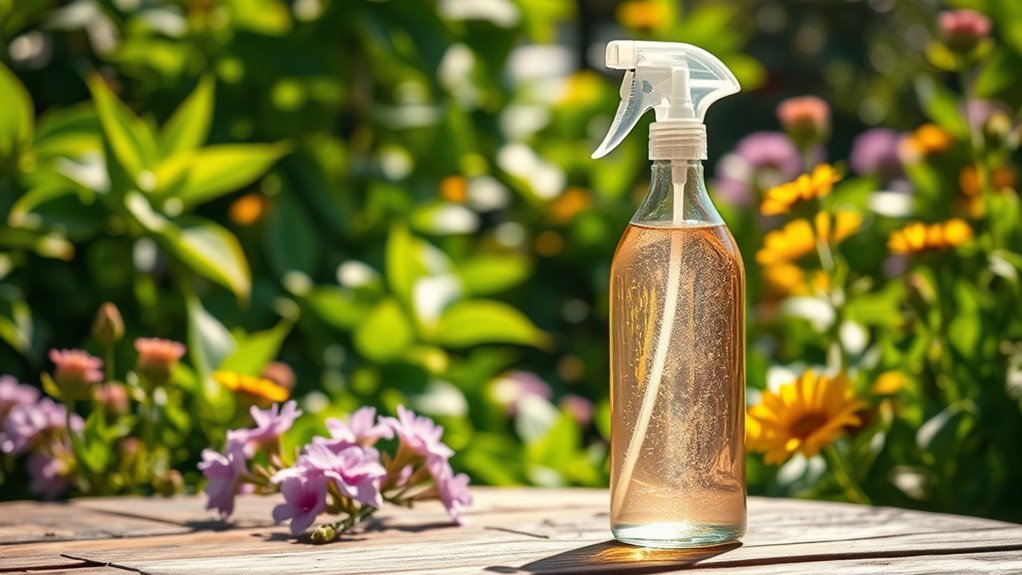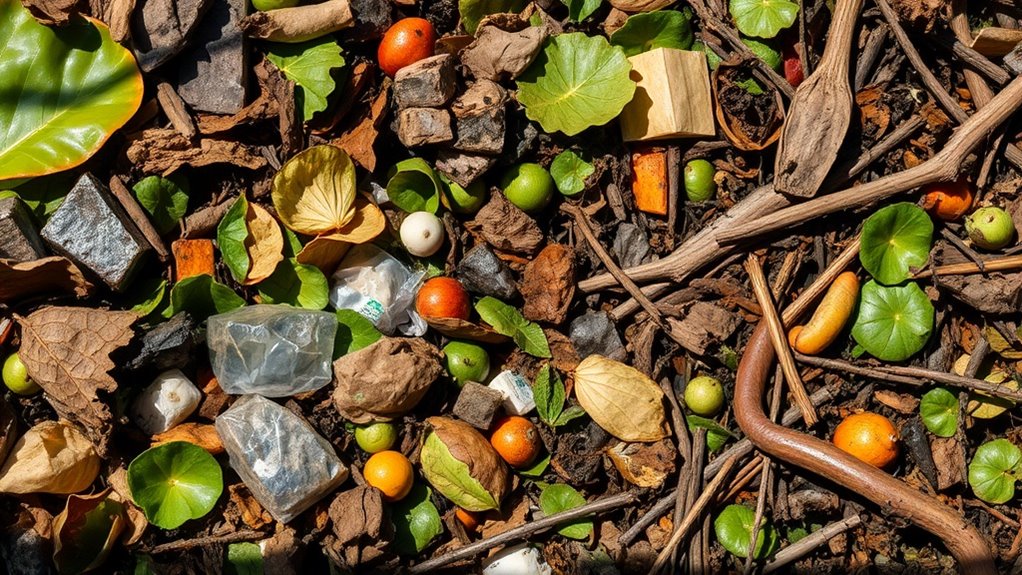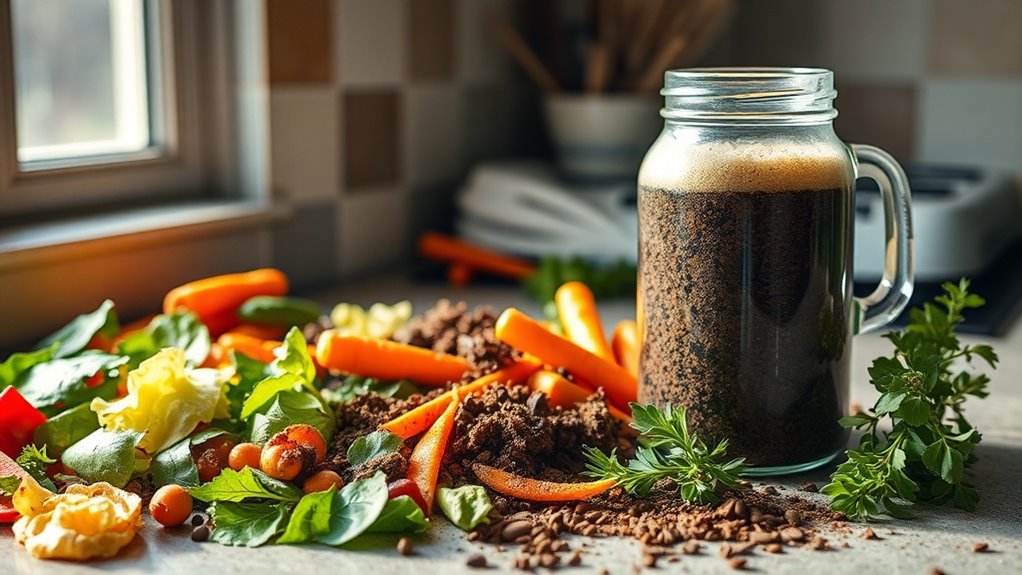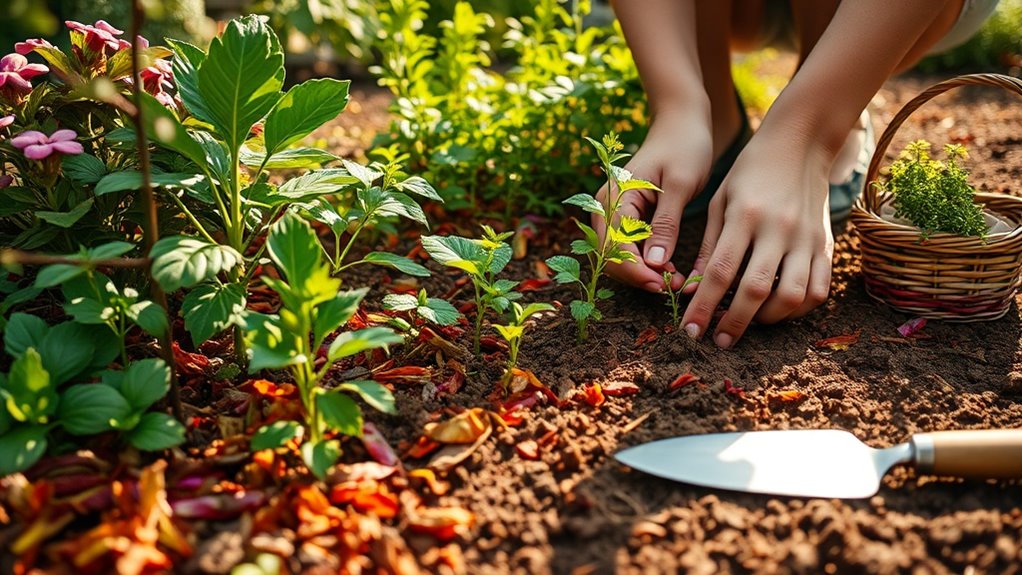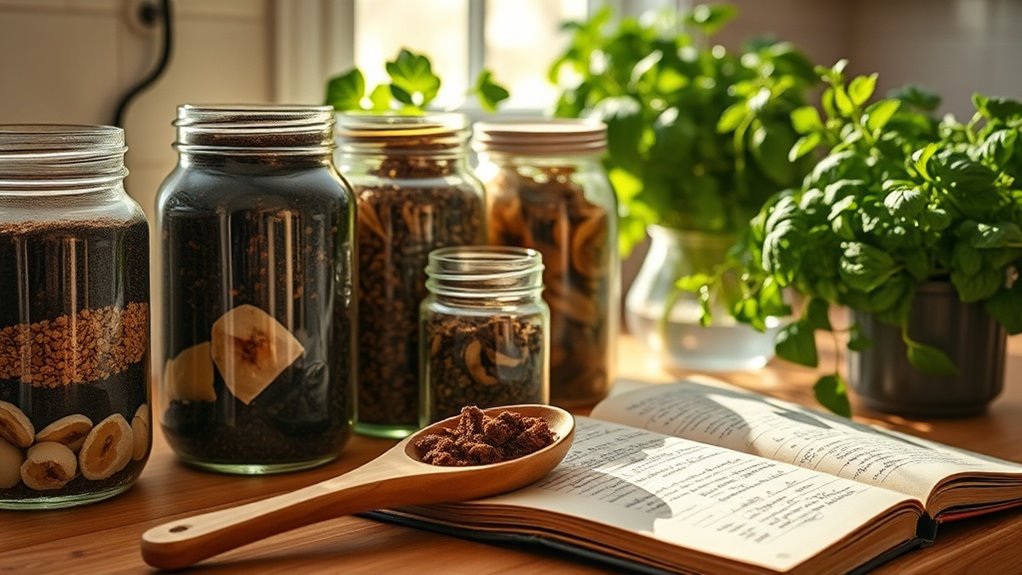This Natural Pest Spray Keeps Bugs Away All Summer
Many common pesticides can harm beneficial insects and disrupt local ecosystems, but there’s a safer alternative. This natural pest spray, crafted from essential oils, effectively repels unwanted bugs while maintaining ecological balance. By using simple ingredients, you can protect your family and garden without the risks associated with chemicals. Curious about how to create and apply this effective solution? Let’s explore the details that will keep your outdoor space bug-free all summer.
Key Takeaways
- Natural pest sprays use essential oils like peppermint and lavender, effectively deterring insects while being safe for family and pets.
- DIY recipes, such as garlic and citrus sprays, provide eco-friendly alternatives that can keep bugs away all summer long.
- Apply sprays on calm days early morning or late afternoon for best absorption and effectiveness against pests.
- Reapply your natural pest spray weekly or after rainfall to maintain continuous protection throughout the summer season.
- Regular maintenance, like mowing and removing standing water, enhances the effectiveness of your natural pest control methods.
Understanding the Importance of Natural Pest Control
Why should you consider natural pest control over conventional methods?
Natural pest control methods, like a summer pest spray, offer a safer alternative for your home and garden.
Unlike synthetic chemicals, natural solutions minimize harmful effects on your family, pets, and beneficial insects.
They often break down more quickly in the environment, reducing long-term exposure risks.
Furthermore, these methods encourage ecological balance, promoting a healthier ecosystem.
By choosing natural options, you not only protect your living space but also contribute to sustainable practices.
Embracing natural pest control can lead to effective pest management without compromising your health or the environment. Additionally, studies show that natural solutions can be just as effective as synthetic pesticides when applied correctly.
Key Ingredients for Your Natural Pest Spray
When creating your natural pest spray, essential oils are a powerful ally, offering both pleasant scents and pest-repelling properties.
Oils like peppermint and lavender not only deter insects but also provide a refreshing aroma for your home.
Additionally, vinegar acts as a formidable repellent, effectively keeping pests at bay while being safe for your family and pets. Using vinegar in your garden can also enhance its effectiveness as a natural solution, ensuring a healthier environment for your plants.
Essential Oils Benefits
Essential oils serve as powerful allies in your quest for a natural pest spray, boasting a range of benefits that can effectively deter unwanted insects. They’re not only eco-friendly but also offer pleasant aromas, making your environment more inviting. Here’s a quick overview of some popular essential oils and their specific pest-repelling properties:
| Essential Oil | Target Pests | Additional Benefits |
|---|---|---|
| Lavender | Mosquitoes, Flies | Calming aroma |
| Peppermint | Ants, Spiders | Refreshing scent |
| Eucalyptus | Roaches, Flies | Antimicrobial properties |
| Tea Tree | Mites, Fleas | Natural antiseptic |
| Citronella | Mosquitoes | Natural deodorizer |
Vinegar as Repellent
Have you ever considered how versatile vinegar can be in your natural pest control arsenal?
This common household ingredient not only disinfects but also repels pests.
Its strong scent deters ants, fruit flies, and even spiders.
To create an effective repellent, mix equal parts vinegar and water in a spray bottle.
You can add a few drops of essential oil for added potency.
Spray this solution around entry points, windows, and areas where pests are frequent.
Remember to reapply after rain or heavy winds.
With vinegar, you can keep your home pest-free without harmful chemicals.
DIY Recipes for Effective Bug Repellent
Creating your own bug repellent can be a simple and effective way to keep pesky insects at bay. A homemade solution can be just as effective as commercial products while being eco-friendly.
Here are a few DIY recipes you can try:
- Essential Oil Blend: Mix 10 drops of lavender and eucalyptus oil with 2 tablespoons of carrier oil.
- Garlic Spray: Blend 2 cloves of garlic with water, strain, and add a few drops of dish soap.
- Citrus Spray: Combine the peels of 2 lemons in a quart of water and let steep overnight.
- Peppermint Solution: Mix 10 drops of peppermint oil with 2 cups of water in a spray bottle.
Give these a shot!
How to Apply the Natural Pest Spray
Wondering how to effectively apply your natural pest spray?
Start by shaking the bottle well to ensure even distribution of ingredients. Choose a cool, calm day for application, avoiding windy conditions to prevent drift.
Spray directly onto affected plants, focusing on the undersides of leaves where pests often hide. Maintain a distance of about 12 inches for optimal coverage.
Apply in the early morning or late afternoon to prevent evaporation and maximize absorption. Reapply every week or after rainfall for best results.
Always test a small area first to ensure your plants respond well to the spray. Additionally, using natural sprays for garden pests can help create a healthier ecosystem in your garden. Happy gardening!
Tips for Maximizing Effectiveness
How can you ensure your natural pest spray works at its best?
Follow these tips to boost its effectiveness:
- Apply during early morning or late evening when pests are most active.
- Use fresh spray; mix small batches to maintain potency.
- Target areas where pests congregate, like under leaves or near entry points.
- Reapply after rain or heavy dew to maintain protection. Additionally, consider using ingredients known for their organic pest control properties to enhance the spray’s effectiveness.
Safety Considerations for Using Natural Sprays
When applying natural pest sprays, what safety measures should you keep in mind?
First, always read the label for specific instructions and recommended usage.
Wear gloves and a mask to avoid skin contact and inhalation of any spray mist.
It’s smart to test the spray on a small area to check for adverse reactions on plants.
Ensure you’re spraying on a calm day to prevent drift, and keep pets and children away during application.
After spraying, wash your hands thoroughly.
Store any leftover spray in a cool, dry place, out of reach of kids and pets, to maintain safety. Additionally, consider using eco-friendly pest control methods to ensure a safe and sustainable approach to pest management.
Maintaining a Bug-Free Outdoor Space Throughout Summer
To keep your outdoor space bug-free throughout the summer, it’s essential to combine proactive measures with regular maintenance.
Start by implementing these strategies:
- Regularly mow your lawn to eliminate hiding spots.
- Trim back shrubs and plants to improve air circulation.
- Remove standing water to prevent mosquito breeding.
- Use natural pest sprays every few weeks for extra protection.
Additionally, consider incorporating eco-friendly pest protection methods that are designed to naturally deter pests without harming your plants or the environment.

